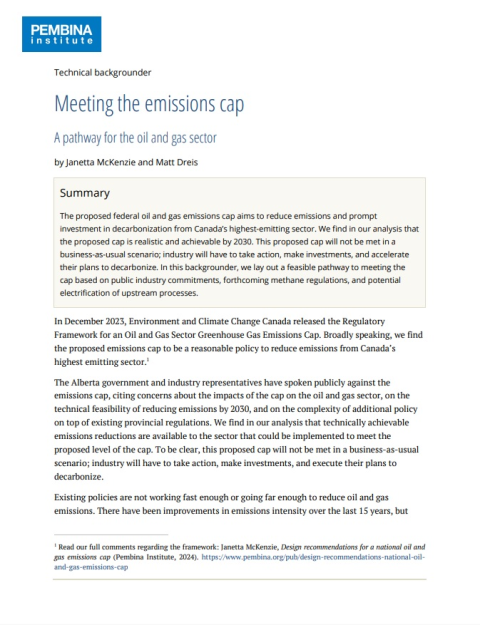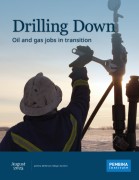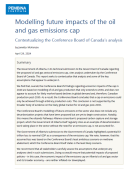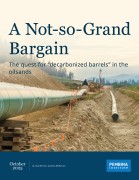In December 2023, Environment and Climate Change Canada (ECCC) released the Regulatory Framework for an Oil and Gas Sector Greenhouse Gas Emissions Cap. Oil and gas is Canada’s highest-emitting sector, making up 28% of national emissions in 2021. The proposed cap requires that the sector reduce emissions from 171 Mt in 2019 to 106-112 Mt in 2030, with an additional 25 Mt of compliance flexibility.
The Pembina Institute's technical backgrounder, part of our submission to the formal consultation process, explains how the proposed cap could be achieved. Our analysts show how voluntary commitments already made by oilsands companies—like the Pathways Alliance plan to reduce emissions by 22 Mt per year by 2030— in addition to federal and provincial targets to reduce oil and gas methane by 75%, along with electrification, carbon, capture, storage and utilization (CCUS) and several other measures can move Canada toward the target in the required timeline.
Moreover, as the world moves along a net-zero trajectory by 2050, and with investments in clean energy outpacing investments in fossil fuels, we find the emissions cap to be responsible and practical, helping to prepare Canada for reduced oil and gas demand and a low-carbon economy that more closely scrutinizes the emissions associated with energy production. The proposed cap uses a production forecast based on the Canada Energy Regulator’s Canada net-zero scenario, which anticipates a moderate increase in Canadian oil and gas production before long-term, market-based decline.
Provisions in the proposed regulatory framework of the emissions cap give flexibility for firms to make investments, procure technology, and get larger projects up and running—including multi-year compliance periods—the ability to “bank” credits in the cap-and-trade system for a limited amount of time, and the ability to use high-quality Canadian offsets for partial compliance. The flexibility is here; the time to make progress is now.









